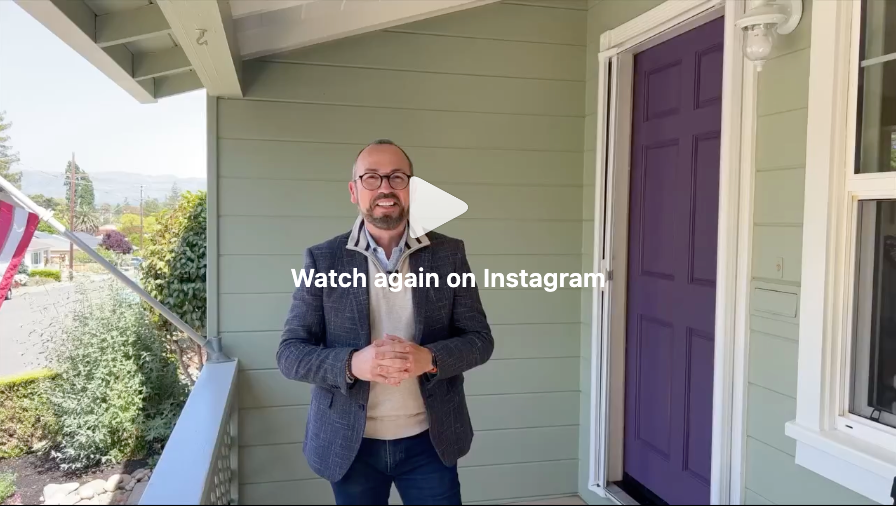How to Host a Successful Virtual Open House: Tips From a Broker

Vetted by HousingWire | Our editors independently review the products we recommend. When you buy through our links, we may earn a commission.
Virtual open houses are a unique way to help you stand out from other agents as a tech-savvy marketer and can help get your listings in front of hundreds (possibly thousands) of potential buyers online. They’re also much less intrusive for homeowners — perfect for sellers who don’t want tons of people walking through their homes on a Sunday afternoon. They provide an opportunity to boost your digital presence and fill your pipeline with leads from around the world!
In this article, you’ll learn the pros and cons of virtual open houses and the steps to hosting successful ones that result in more leads.
What is a virtual open house, and are they still worth it?
A virtual open house is a live or pre-recorded video walk-through of your listing that helps potential buyers get a more in-depth view of the property for sale than images can provide. Like a traditional open house, a virtual open house has three goals: to showcase the property’s best features to potential buyers, answer any questions they have, and convert unrepresented buyers attending the open house into leads.
If you host a virtual open house as a live stream event on social media, you create an interactive experience where your viewers can ask questions in real time. If someone asks, “Is the fireplace gas or wood burning?” you can walk over to the fireplace, tell them it’s gas, and flip the switch to turn it on. That’s the gist of a virtual open house. Pretty cool, right?
Another cool option is pre-recording a virtual open house that buyers can access anytime and watch on their own. Simply take a video of the property with your voiceover commentary, talking about the home’s features, then post it on YouTube, Vimeo, TikTok or Instagram and share the link with any potential buyers. It’s super easy, and it’s a great lead magnet, too! Here are some examples we found on TikTok.
What are the pros of a virtual open house?
You may be asking yourself whether they’re worth it. During the pandemic, virtual open houses were required in many parts of the country, but they’ve proven to have enormous staying power due to their many advantages. Let’s discuss some of the benefits of a virtual open house — for you and your clients.
- Marketing & branding – While your listing won’t last forever (eventually, it will sell), your marketing capabilities will live on as social media content that you can share with potential sellers who want to know how you plan to market and sell their homes. A polished series of virtual open house videos will make you stand out as a tech-savvy marketing professional and will make your social media followers remember you when they’re ready to sell.
- If you’re flying solo and want to take it up a notch, there’s a great tool called Pivo that’s perfect for virtual open houses. It’s a simple device that attaches right to your phone and follows you around the room like a professional cameraperson. It’s also perfect for making DIY virtual tours and 360 videos without paying a monthly fee like you would with Matterport.
- More privacy and less foot traffic – Plenty of homeowners, especially owners of luxury homes and parents of small children, don’t like the idea of a bunch of strangers trooping through their home. Virtual open houses are an excellent solution because it will be just you and your phone in the home. No strangers. No worries!
- Improved health and safety — In addition to foot traffic and privacy concerns, hosting a virtual open house alleviates worries homeowners may have about the security of their belongings. They may also have health conditions that preclude them from leaving the home for the afternoon, or allergies or immune system issues that put them at risk when exposed to lots of strangers.
- Greater convenience — Virtual open house events are far more convenient for both attendees and homeowners. You can avoid a situation where it’s difficult for the occupants and their pets to leave the home for hours on a weekend. Instead, you can pop by at a more convenient time when they’re at work or school.
- You’ll hone your tech skills — Don’t worry — you don’t need to be a professional videographer to host a virtual open house. You need a basic level of camera skills to avoid the camera moving too much and making people watching feel queasy! If you don’t already have a gimbal, I’d highly recommend picking one up. It will stabilize your phone’s camera and give you smoother footage. Taking the time to learn these skills will differentiate you as a tech-savvy marketing whiz, and this may even help you land more listings! Some clients may be impressed by your tech skills, on-camera poise, expansive reach, editing skills, and out-of-the-box strategies.
We love CapCut for editing video walk-throughs. You can turn your virtual open house tour into multiple social media marketing posts, even adding graphic design elements, to fill your social feeds with relevant, exciting content.
- Wider audience reach — You can only squeeze so many people in a house. But you could reach hundreds or even thousands of viewers with a video in the same time you would spend doing a traditional open house. This increased exposure will help you find new leads, especially those impressed by your marketing skills. This is a huge benefit for the seller and for you as the agent.
- Meet out-of-town, busy or homebound buyers — Whether you choose a live or pre-recorded option, your virtual open house is an incredible opportunity to attract buyer leads who live out of town (think relocation buyers and foreign investors) or those who are simply too busy to attend a traditional open house.
- They’re ideal for agents who dislike or fear being on camera — If the thought of being on video for an hour or more terrifies you, that’s ok! You have a few options: bring a more outgoing colleague and let them be on camera while you field questions and help in the background. You could also start the livestream with yourself on camera doing a quick intro then flip the camera the other way and show the property as you talk about each feature.
Won’t buyers want to see the house in person, though?
According to a 2023 survey, 85% of millennials and 60% of Baby Boomers say they would be willing to buy a home without seeing it in person. In my experience, most buyers would prefer to visit a property before buying it. Yet, often, this simply isn’t possible.
Let’s say a hot property comes on the market at an entry-level price point, and a qualified buyer is out of state. There’s not always time to make travel arrangements before the in-person open house. This is where virtual open houses can be beneficial.
So, I’d recommend using the virtual open house for interested buyers to preview the property. Then, if they’re local and time permits, you can invite them to schedule a private showing.
8 steps to hosting a successful virtual open house
1. Choose the right listing
Determining the right listing for a virtual open house is more about the seller than the property itself, although for best results, choose listings that are priced well and have some unique features for you to showcase. Choose a listing with sellers who like the idea of a virtual open house. You’ll also want to test the internet service at the property first. If there’s a poor signal, you will need to connect to the seller’s WiFi (for livestreaming). Don’t wait until the day of the open house to figure this piece out!
2. Choose the right day and time for your virtual open house
I’d stick to weekends, like traditional open houses. However, it’s also worth doing a twilight open house on a weeknight after people are home from work. This could work exceptionally well with homes with killer views — like a stunning sunset over the ocean, perhaps — or amazing uplighting you want to showcase.
3. Choose your platform
Facebook, Instagram, YouTube, TikTok…there are lots of options available. If you plan to go live, I’d stick with Facebook, Instagram, or YouTube — wherever you have the most followers. There are some differences in these platforms, of course, but the most critical factor in deciding which one to use is where you’ve already invested time and energy into building your audience. If you have thousands of YouTube subscribers but no Facebook followers, then absolutely host your virtual open house on YouTube. That’s where your people are and where you’ll increase your chances of gaining new leads.
If you prefer to do a pre-recorded version (good for leveraging your time since you only have to record a video once, but it doesn’t allow for real-time interaction), you can use your phone’s camera or record using the Zoom app. Pre-recorded versions also have the advantage of being edited! You can add music, edit however you like, and really showcase your video editing skills as you develop them.
You could also record a livestream of a Zoom where you answer common buyer questions in the video. This makes it less of an open house and more of a guided property tour, yet it’s an option worth mentioning. You could even get a little cute with it and brand it an “On Demand Open House.”
4. Prep your tech
Straightforward yet important! Be sure your phone and laptop are charged (whatever you’re using to record/stream), bring extra chargers just in case, test the WiFi or your hotspot (make sure the signal is strong enough to support an hour or two of livestreaming), and experiment with different lighting and angles to be sure you’re showing off the property in the best ways possible. I’d recommend going to the property for a test run a day or two before the virtual open house. That way, you can troubleshoot if anything isn’t quite right.
5. Invite people, advertise, market and get the word out there!
This is the MOST important part! Spreading the word and inviting people to attend is the key to finding new leads. This step is earlier in the process than you might think, and the reason is you will want to start promoting your virtual open house as soon as possible, meaning as soon as you’ve nailed down the date, time, and platform. Don’t wait. Start telling people about it ASAP.
How do you spread the word about your virtual open house?
Post about it on all your social media channels
Treat it like the exciting event that it is and invite everyone you know, even if they aren’t local or aren’t in the market for a house. It’s all about branding yourself as a cutting-edge real estate pro. You can tease it out weeks or even months ahead of time, depending on how much pre-marketing time you have.
Run ads and boost your posts on social media
The next level of advertising is increasing your reach on your social channels. Facebook and Instagram ads are relatively inexpensive, so it’s worth investing some of your advertising budget to gain exposure and potentially new leads. Real Geeks is a good resource for finding leads using Facebook ads.
Email your database with the details and an invitation
Be sure to include specifics on how and where to join the livestream and a link.
Direct mail and door knocking
If you have time, send a direct mail postcard to the neighbors around the property and include a QR code to the livestream link. If there’s no time for mailers, get out there and door-knock the neighborhood. Or, do both! You never know — many times, neighbors know people who want to move into the neighborhood!
Call other top agents in the area
I personally do this for all of my upcoming listings. I call the other top agents in the area to let them know we have a new listing. This puts the home on their radar, and many times, they have a buyer who may be a fit. It’s a little old school and might feel intimidating at first, but people are generally kind and appreciative of the call. So call them up and invite them to send their buyers to your virtual open house. They will likely be happy to save time on a Sunday, too!
Invite the other agents in your office
Tell the other agents in your office about your virtual open house and invite them to attend or simply send their buyers.
6. Prepare your talking points
Even if you’re not the listing agent, you’ll still be positioning yourself as an expert on the property. So, familiarize yourself with the key features of the home so you can answer your guest’s questions confidently.
Here are a few common questions you should be prepared to answer: the age of the roof and heating system, location of the lot lines, what renovations or upgrades the sellers have done, average utilities cost, as well as questions about the sellers’ ideal closing time frame, and if there’s an offer deadline.
7. Day of the event: arrive early and prepare the house
If your virtual open house begins at noon, I’d plan to arrive at 11 a.m., earlier than you might arrive when hosting a traditional open house. Not only do you need to prepare the house itself (turning on lights, opening window shades and blinds, picking up anything the sellers left out, hiding anything unsightly), but you’ll also want to give yourself enough time to get your tech set up.
8. Host your virtual open house!
Put on a smile, hit “Go Live” and start livestreaming. Don’t worry about looking or sounding perfect; just do your best and be yourself. If you trip on a word or literally trip down a stair, that’s ok. Audiences actually find moments of imperfection endearing. 😉
Keep an eye on the chat or comment section so you can answer any questions. I’d recommend asking questions, too, to engage everyone who’s watching and encourage them to stick around. Something like: “Tell me in the chat what you think of this gorgeous kitchen!”
Introverts, if you need a nap before and after the event, do it! Being “on” for an extended period like this is definitely draining for us.
9. Follow up, follow up, then follow up some more
The magic is in the follow-up. This is how you will convert your leads to appointments. But you will need their contact information first. So, during your livestream, include a call to action. There are many possible strategies for your call to action, all of which center around giving attendees something they want. Here are three ideas to get you started:
- “Drop your email in the chat and I’ll send you the MLS sheet, floor plan, and plot plan!”
- “Message me with your honest feedback about the property and everyone who does will be entered to win a Starbucks gift card!”
- “Message me to schedule a private showing if you want to see this home in person!”
Then, you’ll be able to stay in touch and follow up. Maybe they’re the right buyer for this home, may want to hire you to help them find another home, or may send you a referral. If they aren’t ready to buy now, put them into your CRM and keep in touch — that’s a new lead!
Hosting a virtual open house: The full picture
Virtual open houses are a great tool for setting yourself apart from your competition, expanding your audience and finding new leads. It also never hurts to ask other agents you’re friendly with if they’ve used this strategy, and they may share more helpful hints with you!




